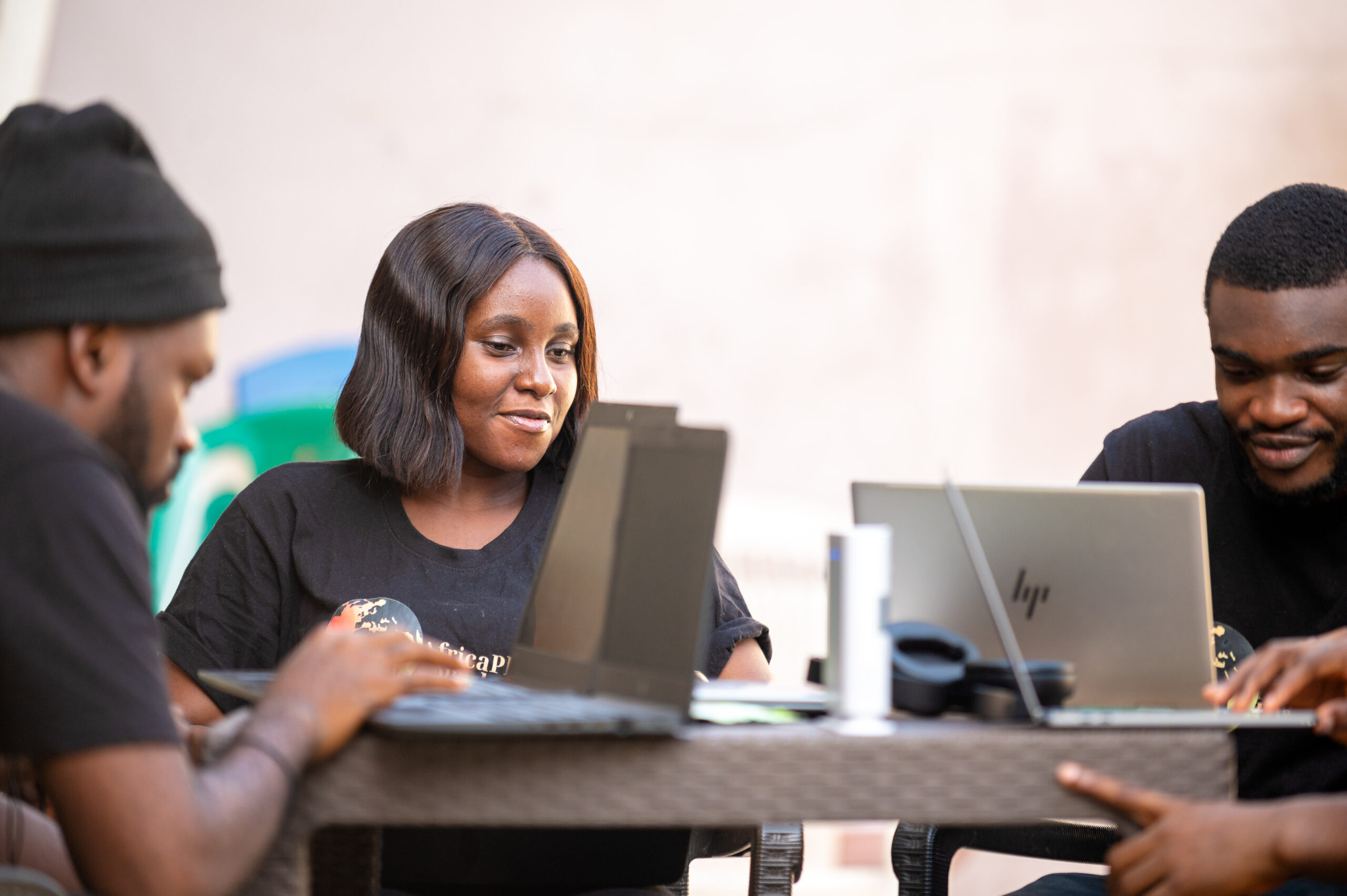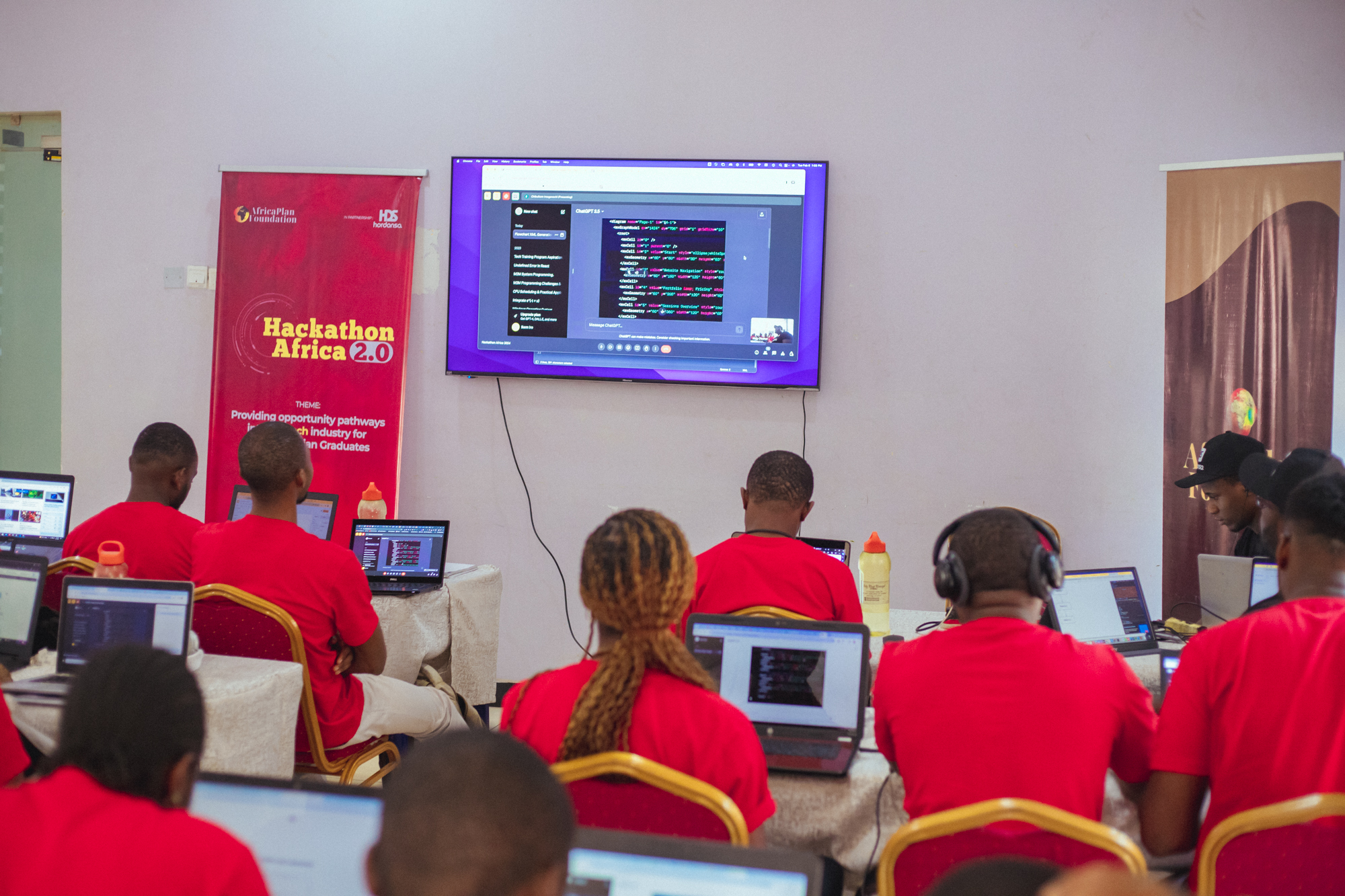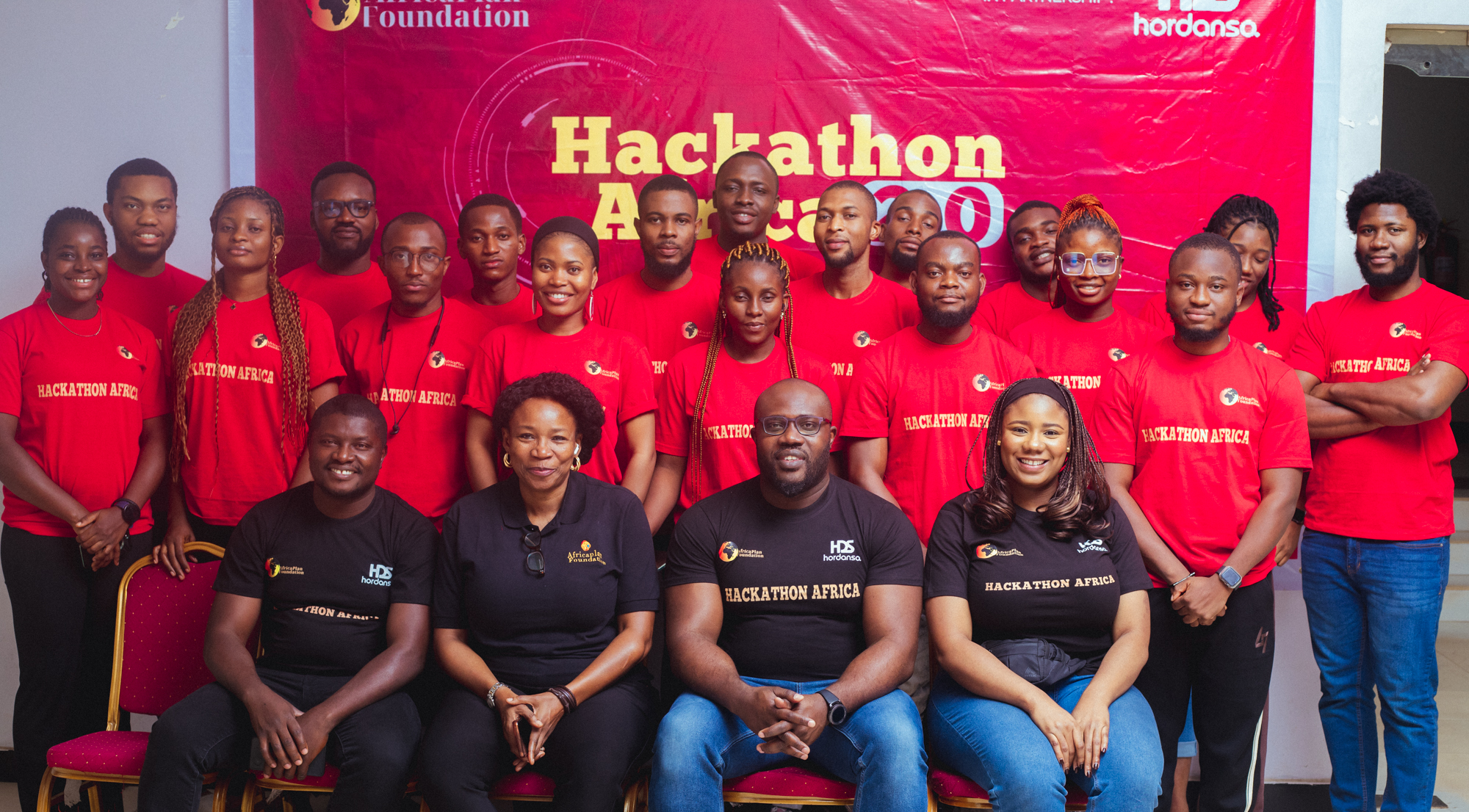Fresh out of university in 2018, Amarachi Iheakam began a tortuous job search that left her feeling frustrated. With a degree in microbiology, she sought a job at hospitals and laboratories, but met with constant rejections. She turned to freelancing platforms, such as Fiverr and Upwork, hoping to find some luck there and land a gig. No luck still.
Iheakam’s job-hunting experience is hardly an isolated example in a country whose hundreds of graduates are largely unskilled and without jobs. Nigeria’s youth unemployment stands at 8.6%, according to the National Bureau of Statistics. Graduate unemployment as of 2022 was 6.722%, according to World Bank data.
To while away time, Iheakam enrolled in several tech courses, including Python learning and AI career essentials.
“I got the certifications; I did not want to stay idle,” she said. “I was checking for internships and voluntary jobs.”
In 2023, Iheakam learnt about a US-based non-profit named Africaplan Foundation, which gave young Nigerians from disadvantaged backgrounds life-changing chances in technology and entrepreneurship. Three months after she enrolled in its training, Iheakam became one of the pioneer graduates of the foundation’s HackathonAfrica Bootcamp.
The HackathonAfrica Bootcamp
Launched in 2022, HackathonAfrica is a fully-funded residential bootcamp training programme. The flagship initiative of the Africaplan Foundation, it offers a 3-month immersive training designed to mould university graduates in Nigeria’s southeast into web developers.
“Through a comprehensive curriculum and very immersive hands-on learning approach, participants are equipped with the essential skills and knowledge necessary to excel in today’s fast-paced technology landscape,” said Oni Chukwu, the founder of the Foundation.
Together with accommodation and meals, the bootcamp provides a $50 monthly stipend to cover for students’ miscellaneous expenses.
Believing that technological careers and entrepreneurship are some of the greatest levellers of possibilities for anyone ready to work hard and push themselves, the foundation provides students with all necessary materials to avoid getting sidetracked during the programme, Chukwu explained.
Although borne out of a desire to give back to his community, the Africaplan Foundation equally draws on Chukwu’s personal experience after he left Nigeria for the US in 1989 for his Master of Business Administration (MBA).
“Those were the early days of technology and the advent of the personal computer and later on the internet,” he recalled.
Sensing the potential of technology for personal and professional growth, he ventured into a tech career shortly after his MBA
“I have not looked back since then, and I made a promise then that if it worked out for me, I would endeavour to give the same opportunity back to others who lack the access like I did when I finished college in Nigeria.”
Africaplan’s mission is to drive significant impact and bring meaningful relief to the region’s enterprising college graduates, according to Chukwu.
At its maiden bootcamp, HackathonAfrica received more than 300 applications from across the Eastern region. 20 graduates—equally divided between men and women—were ultimately shortlisted to join the first cohort that was to be trained on fullstack web development.
One of the cohorts is Chukwuebuka Anumudu, who works as a frontend developer for an Atlanta-based firm. Having studied computer science at the Federal University of Technology, Owerri, Anumudu also coaches students in frontend development.
Getting in
Iheakam kept close tabs on the foundation’s posts on social media so that when it came time to register for the second cohort, she was one of the first people to apply. Before long, a mail arrived in her inbox saying that she had progressed to the next stage—the test stage in July.
“I took the test and got an email after sometime informing me I had progressed to the next stage, which was a virtual interview with some members of the foundation’s board and executive team,” she said.
After the first interview, she received an email congratulating her for getting into the second cohort of the programme. In February 2024, Iheakam joined other admitted students for classes in a WhatsApp group.
In order to provide participants with practical training in generative AI and its problem-solving applications, the foundation teamed up with Hordanso, a Texas-based technology company that specialises in software development for mobile and web platforms, for the second edition.
“Apart from AI, we learnt several soft skills during the program like presentation skills, communication, people management, business thinking and entrepreneurship,” she said. “We were taught html, CSS, JavaScript, react, typescript, python, fastapi, DevOps, git and GitHub,” said Iheakam, who is currently an intern at Hordanso.

According to her, the learning routine was intense and stimulating, helping her to build connections and widen her network. For her final project, she and other group members designed Craftconnect—a platform that connects clients with artisans while helping the latter keep track of both old and new clients.
Priscilla Iroaganachi, Secretary of the Board of Directors, Africaplan Foundation, highlighted the bootcamp’s comprehensive approach to grooming candidates for technical roles in the wider industry. She added that such rigorous training also helped the candidates pursue entrepreneurial endeavours in the technology landscape.
Successes and plans
Running HackathonAfrica has not come without drawbacks, Chukwu stated. Some of the challenges have included erratic power supply, internet availability, and the lack of permanent, well-equipped classrooms to foster uninterrupted learning.
However, the foundation, which is self-funded, has worked to limit the myriad of attendant challenges by providing accommodation and other basic infrastructure to help the students focus during the course of the programme.
So far 2 cohorts—representing 40 young Nigerians—have completed training in technology and entrepreneurship, including internships. Many of the students work for the same companies where they completed their internships.
Although the foundation focuses on graduates in the Southeast, Chukwu envisions spreading HackathonAfrica to other regions of Nigeria, given the problems of unemployment pervasive in the country.

“Our programme is very portable and repeatable and we intend to spread fast so long as the outcome is attained,” he said. “But I had to begin in the Southeast, where I grew up, as my way of giving back to society.”
Over the next few years, the foundation plans to increase the number per cohort and also add one or two more instances per year. Chukwu said that the plan is to also look for partners—technology/facilitators and firms—within Nigeria and worldwide to team up with Africaplan and expand its reach.
Meanwhile, Iheakam looks forward to improving healthcare outcomes using technology.
“My goal is to develop innovative solutions that bridge the healthcare gap in underserved communities and mentor young individuals from underrepresented groups to pursue careers in tech,” she said.
After graduating in 2018 with a degree in microbiology, Amarachi Iheakam faced numerous rejections in her job hunt, leading her to explore freelancing without success. Amid Nigeria's high youth and graduate unemployment rates, she utilized her time to gain tech skills through various courses. In 2023, she enrolled in Africaplan Foundation’s HackathonAfrica Bootcamp, a fully-funded program aimed at training young Nigerians in web development and entrepreneurship. The initiative, launched by Oni Chukwu drawing from his personal experiences, provides immersive, hands-on training, including a stipend and necessary resources for participants.
The inaugural cohort saw over 300 applications, with 20 participants selected. Iheakam secured a spot in the second cohort and underwent intensive training, leading to an internship with a technology company. Despite challenges such as erratic power and lack of permanent infrastructure, the bootcamp has trained 40 participants across two cohorts, with plans to expand. The foundation aims to address unemployment through technological careers and entrepreneurship, envisioning broader geographic reach and partnerships. Iheakam aspires to use her tech skills to improve healthcare outcomes and mentor others in underserved communities.






